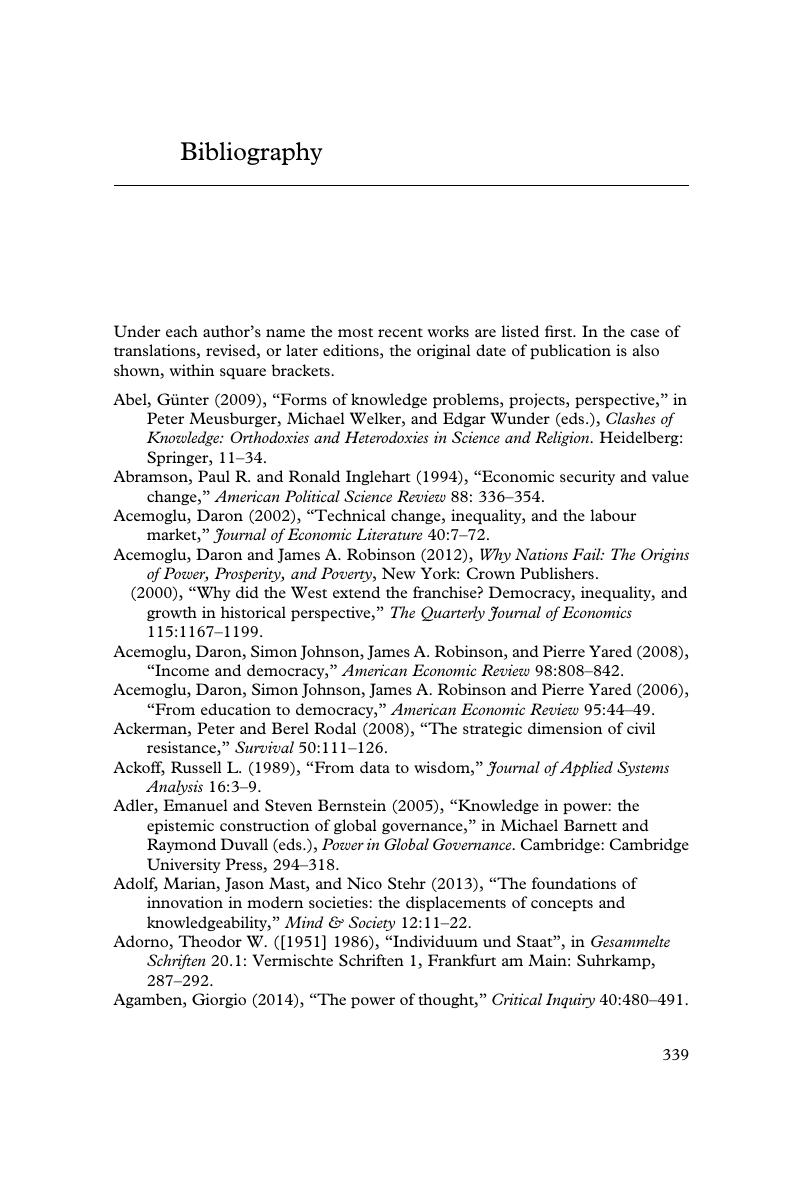Book contents
- Frontmatter
- Contents
- List of figures
- List of tables
- Introduction
- 1 Coming to terms
- Excursus: How much knowledge does democracy need, and how expensive should it be?
- Excursus: An inconvenient democracy: knowledge and climate change
- Knowledge and democracy: summary and conclusions
- Bibliography
- Index
- References
Bibliography
Published online by Cambridge University Press: 05 December 2015
- Frontmatter
- Contents
- List of figures
- List of tables
- Introduction
- 1 Coming to terms
- Excursus: How much knowledge does democracy need, and how expensive should it be?
- Excursus: An inconvenient democracy: knowledge and climate change
- Knowledge and democracy: summary and conclusions
- Bibliography
- Index
- References
Summary

- Type
- Chapter
- Information
- Information, Power, and DemocracyLiberty is a Daughter of Knowledge, pp. 339 - 392Publisher: Cambridge University PressPrint publication year: 2015



